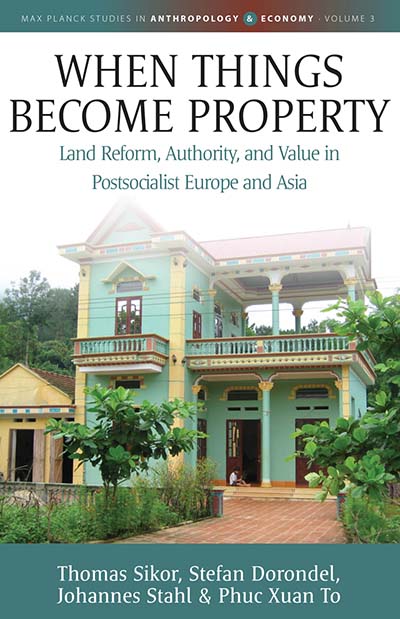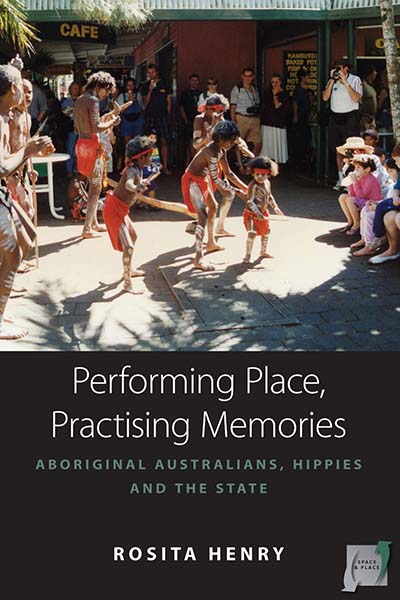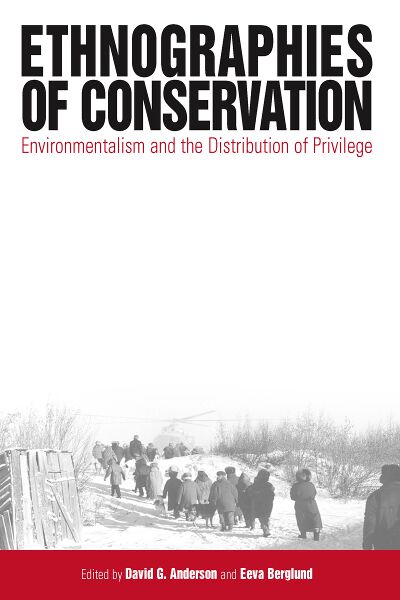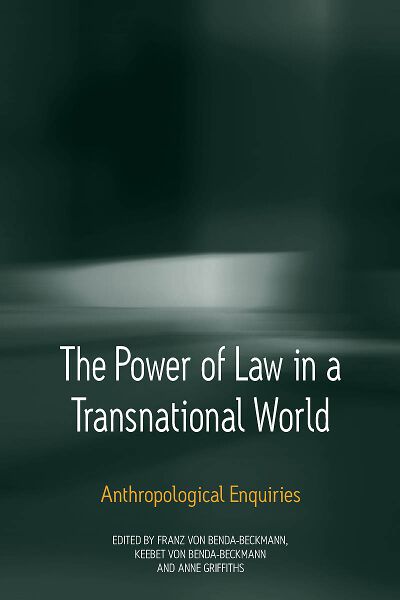
Series
Volume 3
Max Planck Studies in Anthropology and Economy
See Related
Anthropology JournalsEmail Newsletters
Sign up for our email newsletters to get customized updates on new Berghahn publications.
When Things Become Property
Land Reform, Authority and Value in Postsocialist Europe and Asia
Thomas Sikor, Stefan Dorondel, Johannes Stahl and Phuc Xuan To
Full Text PDF Made available under a CC BY-NC-ND 4. license with support from the Max Planck Institute for Social Anthropology.
250 pages, bibliog., index
ISBN 978-1-78533-451-1 $135.00/£104.00 / Hb / Published (April 2017)
ISBN 978-1-78533-558-7 $19.95/£15.95 / Pb / Published (April 2017)
Reviews
“Despite the seemingly exotic selection of countries, the authors make a significant contribution to the assessment of privatization policy… The volume allows a better understanding of the overall problem and the causes of the failure and can therefore be considered as a valuable contribution to the forthcoming discussion… it is strongly recommended to be read by anyone interested in evaluating privatization policy.” • Jahrbücher für Geschichte Osteuropas
“I think this is an excellent book. The command of the empirical material allows the authors to drive home a series of points that have theoretical purchase far beyond the analyzed contexts. This is an exciting contribution to the understanding of major social transformations.” • Christian Lund, University or Copenhagen
Description
Governments have conferred ownership titles to many citizens throughout the world in an effort to turn things into property. Almost all elements of nature have become the target of property laws, from the classic preoccupation with land to more ephemeral material, such as air and genetic resources. When Things Become Property interrogates the mixed outcomes of conferring ownership by examining postsocialist land and forest reforms in Albania, Romania and Vietnam, and finds that property reforms are no longer, if they ever were, miracle tools available to governments for refashioning economies, politics or environments.
Thomas Sikor was Professor of Environment and Development at the University of East Anglia in the United Kingdom.
Stefan Dorondel is Senior Researcher at the Francisc I. Rainer Institute of Anthropology Bucharest and is affiliated with the Institute for Southeast European Studies Bucharest.
Johannes Stahl, former Ciriacy-Wantrup Postdoctoral Fellow in Natural Resource Economics and Political Economy at the University of California at Berkeley, now works for a multilateral environmental agreement dealing with trade in endangered species of fauna and flora.
Phuc Xuan To is Research Fellow at Resources, Environment and Development Group of Crawford School of Public Policy, at the Australian National University.
Subject: Anthropology (General)Political and Economic Anthropology
Area: EuropeAsia
When Things Become Property by Thomas Sikor, Stefan Dorondel, Johannes Stahl and Phuc Xuan To is available open access under a Creative Commons Attribution-NonCommercial-NoDerivatives 4.0 International License (CC BY-NC-ND 4.0) with support from the Max Planck Institute for Social Anthropology.
Full Text PDF
OA ISBN: 978-1-78533-452-8




